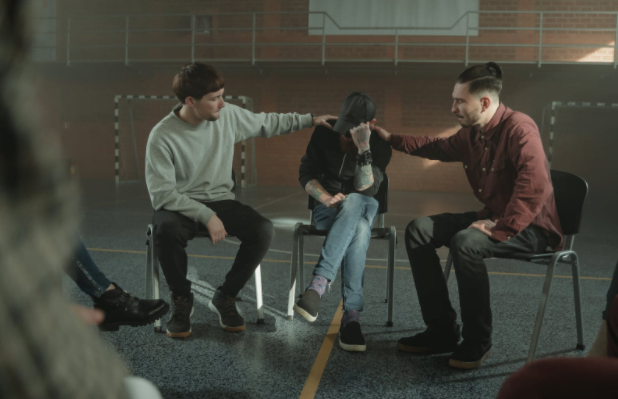Although drinking alcohol might not seem to be a problem, over time, users may develop dependency and significant health issues. Some common diseases associated with excessive drinking include digestive disorders, liver diseases, stroke, heart diseases, various cancers, and high blood pressure.
The effects of alcohol addiction doesn’t stop on the users; they come with social and economic problems that affect the people around them and society. It can negatively impact the victim’s marriage, work, and family, so alcohol addiction treatment is important.
Research indicates that nearly one-third of alcohol addicts successfully quit drinking after treatment. Those that don’t quit substantially cut their drinking and go-ahead to live comfortable lives with their loved ones.
But what are the treatments that can help one fight alcohol addiction? Well, that’s what this guide is about. Whether it’s for you, your friend, or a family member, here are some of the most effective treatment options.
How is Alcohol Addiction Treated?
Although there’s no cure for alcohol addiction, the condition is treatable, and there are many treatment options for tackling alcoholism. The challenge is that the road to recovery is not easy; it’s a process that entails more than one therapy.
According to the American Society of Addiction Medicine (ASAM) Criteria, the approach may be based on factors like:
- User’s history of alcohol addiction and withdrawal
- Existing medical conditions
- User’s choice on the treatment options
- User’s social and physical environment
Usually, the first step is to visit your doctor, who will assess the severity of your addiction. You will be asked questions that help gauge an ideal treatment approach for your needs. The treatments often happen in three stages, detoxification, medication, and behavioral therapy or relapse prevention.
Treatments that Help Stop Alcohol Addictions
-
Alcohol Detoxification
Alcohol treatment programs start with detoxification or detox. The program aims at managing withdrawal symptoms when you stop taking alcohol. It allows the body to get rid of toxins and wastes from long-term alcohol use.
Detoxification can be done at a hospital, inpatient, or outpatient treatment facility. The process happens in three stages with constant monitoring for heavy users:
Intake: The doctor conducts a thorough review of the patient’s history of alcohol addiction to understand the situation.
Medication: Medications that mimic alcohol’s effects are given to patients to ease withdrawal symptoms such as sweating, confusion, insomnia, nausea, irritability, vomiting, etc.
Stabilization: Stabilization entails both psychological and medical therapies that prepare the patient’s mind and body for the treatment.
-
Medications

Image source: Pexels.com
After you stop drinking, one of the challenges you face is handling withdrawal symptoms. The symptoms can be worsened by underlying medical conditions which makes having a doctor close by important.
One of the most dangerous things about alcohol addiction is mixing alcohol with other substances. Some people naively think that alcohol can be mixed with any “legal” substance. Well that’s not necessarily the case. There are plenty of legal substances that can be extremely harmful to you if you mix them with alcohol. Substances like Fentanyl and many other opioids are especially dangerous when you mix them with alcohol. So how do people get Fentanyl? Most people get Fentanyl from their trusted doctors. What most of these doctors fail to mention is how addictive these substances are and how much more dangerous they are if you mix them with alcohol.
While no medicine can cure your drinking problem, they make the recovery process bearable and help you avoid relapse. Currently, three medications are approved for use in treating alcohol addiction. They are:
- Acamprosate. This helps cut alcohol cravings by balancing some hormones in the brain.
- Naltrexone. This stops the feel-good effect enjoyed from drinking alcohol, reducing the desire to drink.
- Disulfiram. This drug acts as a sanitizer, and it makes you throw up or feel sick when you take alcohol.
Behaviors Therapy and Behavioral Modification

Image source: Pexels.com
Behavioral therapy aims at changing your drinking using counseling, and it’s done by a professional. People addicted to alcohol need to master various skills and mechanisms that keep them away from alcohol.
Working with a therapist during or after rehab helps you gain new skills and remain sober for long. Among the many things you learn from the therapist are:
- How to deal with behaviors that trigger drinking
- How to manage stress
- How to express yourself without fearing judgment
- How to develop a strong support system
- How to set goals and achieve them
Types of Behavioral Therapy
- Cognitive–Behavioral Therapy: Its focus is to identify and solve cues that trigger heavy drinking, leading to relapse.
- Motivational Enhancement Therapy: The treatment identifies the advantages and disadvantages of therapy, helps in developing a plan of changing your drinking behavior, developing confidence, and essential skills of remaining disciplined.
- Marital and Family Counseling: Involves your family members in the treatment and shows them how their support promotes abstinence.
- Brief Interventions: They are brief counseling sessions where your counselor identifies your drinking challenges and risks and helps you develop ideas for change.
Other Ways of Fighting Alcohol Addiction
Like said, stopping alcohol addiction is a lengthy process that doest stop after rehabilitation. You want to avoid anything that triggers alcohol craving to ensure you don’t relapse into alcoholism. As you recover, putting some measures in place and staying in the right environment will help you maintain your sobriety.

Image source: Pexels.com
Here are some of the things to do:
- Make alcohol hard to access by not keeping them in your house.
- Hang around friends who don’t drink to avoid the temptation.
- Join a support group like Alcoholics Anonymous (AA).
Conclusion
Once you decide to quit drinking, seeking help from professionals is the best approach, increasing your chances of success. Remember, although it’s possible to quit an addiction, you need the right support to make it.
In this guide are some of the necessary treatments for drinking disorders. It’s never too late to get your life in order and enhance your health by fighting alcohol addiction. Take a small step now, and with discipline, you’ll be amazed at the results in a year.
References
https://www.asam.org/asam-criteria/about
https://www.verywellmind.com/what-is-behavioral-therapy-2795998
https://www.healthline.com/health/medication-alcoholism#outlook

